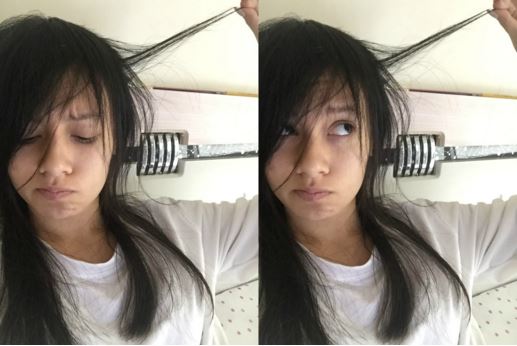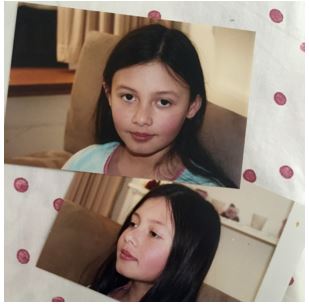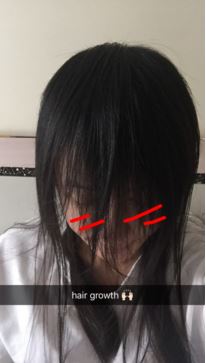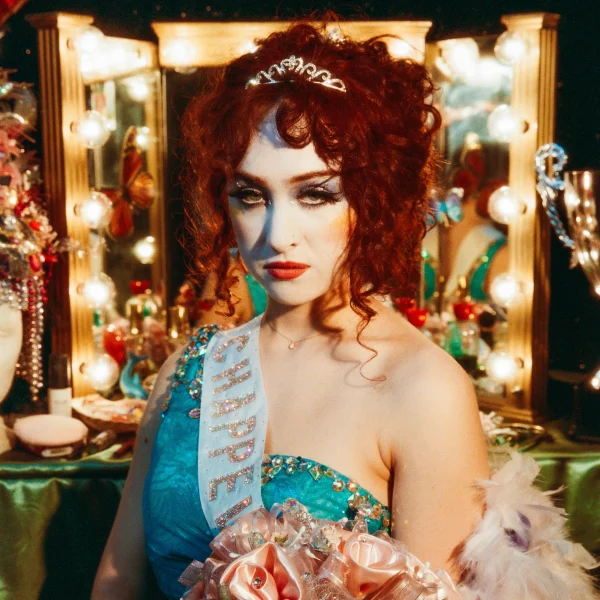“I Can’t Stop Pulling My Hair Out!” – Trichotillomania from a UNIS Student’s Perspective
I don’t often browse through the Cosmopolitan magazine’s Snapchat Discovery channel, but that one time I decided to flick around, I think it was fate when I noticed that article about a woman named Rebecca Brown who suffers from trichotillomania. When I saw Brown speaking about her condition with a video of her shaving her head, I got super excited. Why? Because I’ve been following Brown for years, and started watching her videos before trichotillomania was becoming a more “known” condition. I was excited because such a popular magazine such as Cosmopolitan was able to raise awareness about this misunderstood condition! And although many of my peers know, in case you haven’t already guessed, I, the writer of this article, am also a victim of this psychological disorder known as trichotillomania.
Trichotillo-what? For those of you who haven’t seen Brown’s video or read the article, “trichotillomania is a type of psychological condition that involved strong urges to pull one’s hair out” (Kidshealth.org) and can cause baldness depending on the area where the person has pulled. It may often be linked to other mental disorders such as chronic stress, post-traumatic stress, anxiety or depression. So why did I decide to address this issue? Although I will give you some insights, I’m not here to give you a long emotional life story about my constant struggle as a tricher. I’m not uncomfortable exposing myself about trich because my main purpose is to teach you and make you more open minded about this surprisingly, not so uncommon condition.
If I were to describe trichotillomania using a metaphor, it would be that of a labyrinth. You’re trying to find a way to your ultimate goal of being pull-free with thick-long, luscious locks, but you have no idea where to start. The journey to reach your goals is like the road to reach the other side of the labyrinth. It that can take months or even years. It’s a road filled with stops, high walls you cannot climb and other obstacles. It’s like a never-ending cycle where you often find yourself back to square one.
You may be thinking “why can’t you just stop?”, believe me, I and the many other trich sufferers ask the same question to ourselves. Trich sufferers “experience an overwhelming and intense urge to pull their hair out (from the root), and the tension increases until you do” (NHS Choices). Pulling the hair out gives us a temporary sense of relief, and by temporary I mean a few seconds. This intense feeling is INTENSE. Picture yourself being bitten by a mosquito. It itches, a lot right? You know you shouldn’t scratch it, but you can’t help it. Multiply that itching sensation by 10. That’s how I feel when I try to overcome this overwhelming urge, and when I feel that “pop” as soon as a hair is pulled from the root, I suddenly feel relaxed…at least for a moment, until I’m overcome with horrible feelings of guilt.
Trich is like an addiction – we don’t want to pull our hair, but we can’t stop. We know it’s not good, so don’t give me a lecture about how “I shouldn’t do that, I’ll damage my hair follicles, you’ll go bald”, yes I know that thank you very much, but I can’t stress how hard it is to just stop. I’ll often tell myself, with hands in my hair “Rosaria, put your hands DOWN” but it’s like as if my hands have a mind of their own. There is no cure for trich, but people have been able to become pull-free for many years. However, it was also common for them to relapse. Like I said, there’s no magic pill I can take to overcome this, and therapy can help but it’s not a cure. Overcoming trich is a battle between myself and I, but of course it becomes easier with the support from others.
2008 – Before trich… when I still had long, thick hair…
Trichotillomania is rather impactful on a person’s life. Not only are we concerned with self-image and have to deal with insecurities of not having hair, it also decreases our attention span. It’s hard for me to do simple tasks in the morning like getting dressed to go to school. Trying to study can also be a nuisance, nothing goes in your brain when you experience those intense urges. Your mind tries to be fixed on your work, but every few seconds it drifts off to your hair, so you’re constantly having a conversation in your head: “stop pulling… hands down… breathe…but…ugh, no, STOP!”
Although I’ve been living with trichotillomania for over five years (and counting…), I’ve slowly come to learn the idea of self-acceptance. The IB Diploma is my biggest obstacle at the moment in overcoming this condition (but hey 4.5 more months to go!) Little things like healthy nutrition and exercise have helped me immensely because I’ve started to feel good about myself. I’ve stopped wearing my wig and only wear a bandana to cover up some bald spots, and that was a huge step because I always felt so insecure about walking outside the door without my wig. I’ll eventually transition to a bandanna-free head one day, but for now I accept the way that I am. The journey to recovery is a slow process, but small progress (which I am currently making) is still progress, so there’s no giving up for me just yet.
Me now, yay for progress!
Take a look at Brown’s video! She explains a lot about what I’ve said here and she’s such an inspiration to me and other trich sufferers!
Sources:
- http://kidshealth.org/teen/your_mind/mental_health/trichotillomania.html
- http://www.nhs.uk/conditions/trichotillomania/Pages/introduction.aspx
- https://www.youtube.com/watch?v=i9-eVdx9Nxo






